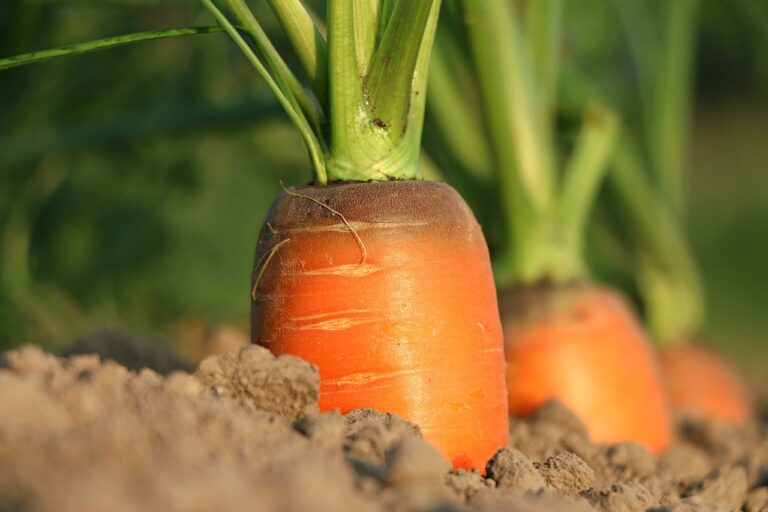Understanding Soil Preparation and Amendments: Testing, Fertility Improvement, and Mulching Techniques
Understanding soil preparation and amendments is vital for optimizing plant growth. Soil testing identifies nutrient deficiencies and pH levels. Analyzing soil fertility guides the application of amendments for healthier plants. Using organic matter improves soil structure and nutrient availability. Adjusting pH levels with lime or sulfur guarantees ideal conditions. Mulching retains moisture, suppresses weeds, and enriches soil. Sustainable gardening practices minimize environmental impact and promote biodiversity. These techniques are essential for maintaining healthy soil and fostering sustainable gardens.
Importance of Soil Testing
Soil testing plays a pivotal role in determining the nutrient deficiencies and pH levels essential for optimizing plant growth. By analyzing soil samples, we can pinpoint specific amendments necessary to create an environment where plants thrive. Without proper testing, there is a risk of over-applying nutrients, which can lead to environmental contamination. Utilizing reputable laboratories such as USU’s Analytical Laboratory guarantees accurate soil test results that form the foundation for successful plant cultivation.
Nutrient deficiencies are a common issue that can hinder plant growth. Through soil testing, we can identify which nutrients are lacking in the soil and take targeted steps to address these deficiencies. Additionally, pH levels are important as they influence nutrient availability to plants. Soil testing helps in determining the current pH levels, allowing us to make informed decisions regarding pH adjustments for best plant growth.
The data obtained from soil testing guides us in selecting the appropriate fertilizers and soil amendments. This tailored approach not only promotes healthy plant development but also prevents unnecessary expenses and environmental harm caused by the improper use of fertilizers. Thus, investing in soil testing is a fundamental step towards creating a sustainable and productive gardening or farming environment.
Analyzing Soil Fertility Levels
Examining the fertility levels of the soil entails a thorough analysis of the availability of essential nutrients important for plant growth and development. Soil fertility levels are critical as they directly impact plant health and productivity. Testing soil fertility is a fundamental step in determining the current status of key nutrients like nitrogen, phosphorus, and potassium. This analysis helps identify deficiencies and guides the application of specific soil amendments to create a balanced and nutrient-rich environment conducive to ideal plant growth.
Understanding soil fertility levels is essential for maintaining soil health and sustaining a productive garden. By evaluating the nutrient content of the soil, gardeners can make informed decisions about the types and quantities of amendments required to address any deficiencies. Balanced soil fertility is crucial for supporting plant development, enhancing fruit production, and ensuring overall garden success.
Soil fertility testing plays a critical role in creating a favorable environment for plants to thrive. It enables gardeners to tailor their approach to soil improvement, ensuring that plants have access to the necessary nutrients for robust growth. By analyzing soil fertility levels, gardeners can proactively address deficiencies and promote a nutrient-rich soil ecosystem that fosters healthy plant growth.
Organic Matter for Soil Improvement
Improving soil fertility through the inclusion of organic matter is a key step in enhancing soil structure and nutrient availability for ideal plant growth. Organic matter, such as compost and aged manure, plays an essential role in improving soil quality. When incorporated into garden soil, organic matter improves soil structure by increasing porosity, which boosts drainage and aeration. This allows plant roots to access oxygen more easily, promoting healthy growth.
Furthermore, organic matter acts as a sponge, increasing the soil’s water-holding capacity. This is beneficial for plants as it guarantees a steady supply of moisture, reducing the risk of water stress during dry periods. Additionally, organic matter serves as a reservoir of essential nutrients, releasing them slowly over time to support ideal plant growth and development.
Incorporating organic matter into the soil also fosters a thriving ecosystem of beneficial soil organisms. These microorganisms break down organic matter, releasing nutrients in forms that plants can readily absorb. This symbiotic relationship between plants and soil organisms contributes to overall soil health and plant productivity.
Ph Adjustment Techniques
To adjust the pH of soil effectively, consider incorporating lime to raise pH levels for plants that thrive in alkaline conditions. Lime, in the form of calcium carbonate, helps neutralize acidic soils, making essential nutrients more available to plants. On the other hand, sulfur application is beneficial for lowering soil pH, which is important for acid-loving plants such as blueberries and azaleas. Soil pH plays a significant role in nutrient availability and plant health. Imbalanced pH levels can lead to nutrient deficiencies or toxicities, affecting plant growth and overall vitality.
Testing soil pH with a kit or professional analysis is essential to determine the need for pH adjustments. By ensuring the soil pH is within the ideal range for specific plants, gardeners can promote optimal nutrient uptake and support healthy plant growth. Alkaline-loving plants like lilacs and clematis prefer a pH level slightly above neutral, while acid-loving plants thrive in more acidic conditions. Proper pH adjustment techniques not only improve the availability of nutrients but also create an environment where plants can efficiently absorb these nutrients for robust growth and development. Maintaining the correct pH balance in the soil is a fundamental aspect of successful gardening practices.
Mulching Benefits and Applications
One key aspect of gardening that greatly benefits plant growth and soil health is the application of mulch. Mulching plays a pivotal role in retaining soil moisture by reducing evaporation, essential for the best growth and health of plants. Additionally, mulch serves as a natural weed suppressant, diminishing the reliance on chemical weed control methods.
Organic mulches, as they decompose over time, contribute to enriching the soil with valuable nutrients, thereby enhancing overall soil health and fertility. Furthermore, mulch aids in regulating soil temperature, acting as a buffer to keep the soil cooler during hot weather and warmer in colder conditions, safeguarding the delicate roots of plants.
Another important benefit of mulching is its ability to prevent soil erosion, particularly on sloped areas, by reducing the impact of rain and wind on the soil surface. By creating a protective layer, mulch helps to maintain the integrity of the soil structure and prevent nutrient loss through erosion.
Enhancing Soil Nutrient Content
How can soil nutrient content be efficiently improved for ideal plant growth and garden health? Enhancing soil nutrient content is essential for maintaining ideal plant growth and overall garden health. By incorporating organic matter into the soil, you can boost its fertility and guarantee that plants receive the necessary nutrients for vigorous growth. Here are four effective ways to boost soil nutrient content:
- Compost: Adding compost to the soil introduces a rich source of organic matter, including essential nutrients like nitrogen, phosphorus, and potassium. Compost helps improve soil structure, water retention, and nutrient availability, fostering healthy plant growth.
- Aged Manure: Aged manure is a valuable organic amendment that enriches the soil with nutrients vital for plant development. It also enhances microbial activity in the soil, promoting nutrient cycling and improving overall soil health.
- Leaf Mold: Incorporating leaf mold into the soil increases organic matter content and enhances soil structure. Leaf mold releases nutrients slowly over time, providing a steady supply of essential elements for plant growth and root development.
- Balanced Nutrient Levels: Maintaining balanced soil nutrient levels is essential for supporting plant productivity and garden health. Regularly amending the soil with organic matter like compost, aged manure, and leaf mold helps sustain ideal nutrient content for robust plant growth and vitality.
Sustainable Gardening Practices
Enhancing soil nutrient content through sustainable gardening practices involves minimizing environmental impact, conserving resources, and promoting biodiversity. Incorporating organic gardening methods such as composting not only improves organic matter content but also reduces reliance on synthetic chemicals, fostering a healthier ecosystem. Water-efficient irrigation systems and rainwater harvesting play vital roles in sustainable gardening by conserving water resources and maintaining long-term sustainability.
Choosing native species for planting not only supports the local ecosystem but also helps in creating wildlife-friendly habitats, enhancing biodiversity. By implementing regenerative gardening techniques like no-till farming and crop rotation, soil health is improved, leading to sustainable and productive gardens. Natural pest control methods further reduce the need for harmful pesticides, contributing to a more balanced and environmentally friendly gardening approach.






